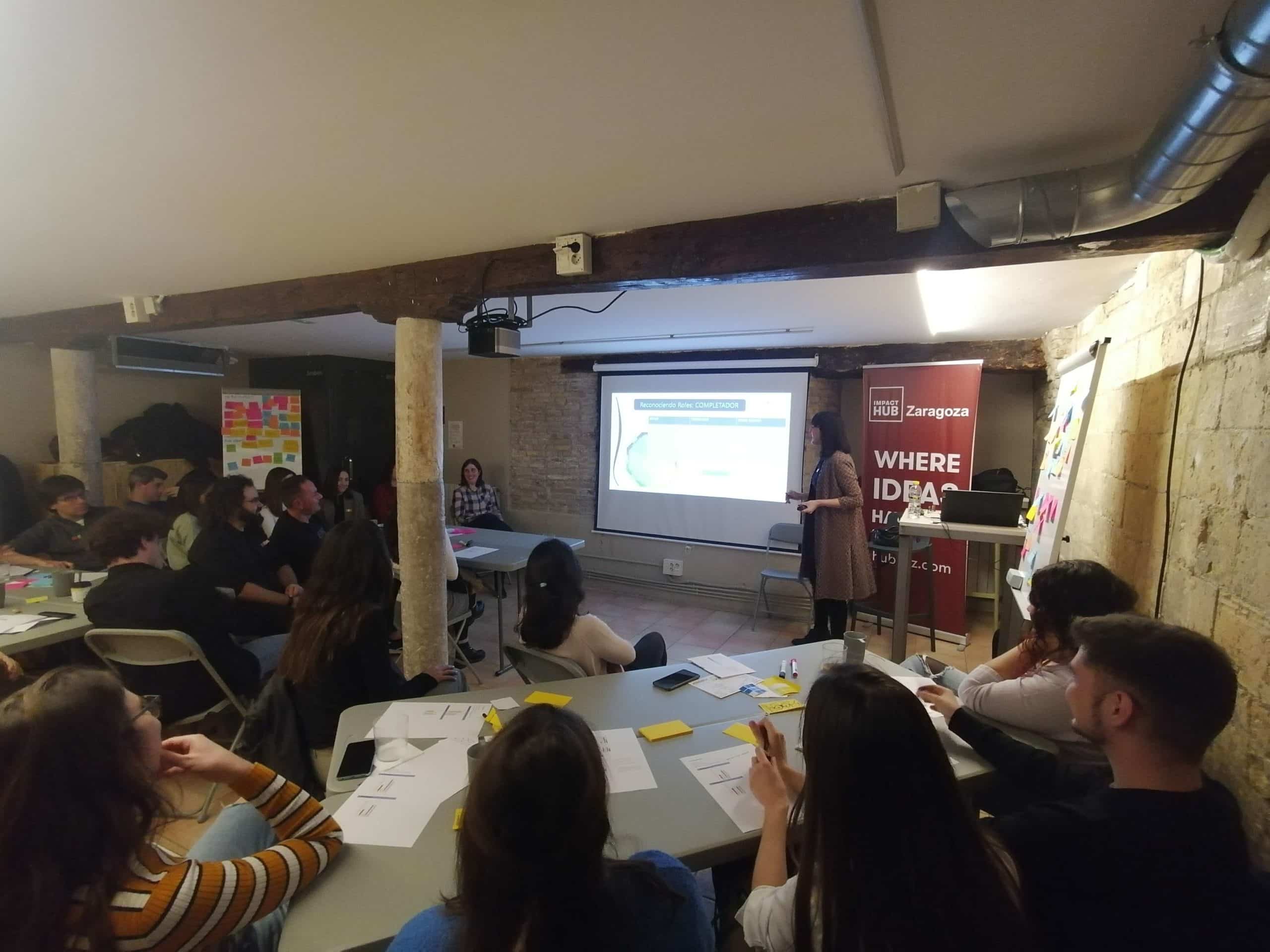In the wake of the pandemic, the labor market has exploded in several countries. In the United States, workers have started the ‘Great Quit’ phenomenon, a movement whereby they have left their jobs, overwhelmed by the burden their companies were putting on them. Although Spain has not yet witnessed such a wave, the frustration of some employees has begun to show. In companies like INFINITIA we have anticipated this unease with a corporate culture plan, and we have started to look at the value of people, putting the magnifying glass on our teams and trying to improve in unison.
Our change began at the end of 2020. Javier Sanz, our CEO, explains the reasons: “We were growing a lot and very fast. We were many people and our “machinery” is them. That’s why we wanted to focus on working on our corporate culture”. This is, in the words of María Hernández, training leader and executive coach, “our own identity, our DNA, our personality”. “It’s what makes us different from other companies that do the same thing. It arises from habits or norms and is transmitted by the way we act, think, how we relate to our team and clients… All these gestures have to do with internal attitudes, but also external ones,” she explains.
At INFINITIA we have taken a special interest in focusing on people. We wanted to give them priority over any other indicator. Everything starts with people: sales, projects, production… This has a direct influence on results. “Working on a company’s culture means working on cultural change,” notes Hernández. “We try to build tools and procedures that are within everyone’s reach,” adds Sanz. “That culture is built by all of us.”
Our first step was to create a talent management program. Thus, the plan – which was developed through different sessions aimed at the internal analysis of the workforce – was aimed at boosting strengths and identifying weaknesses in order to advance toward our goal. After that, came other initiatives such as the figure of ‘Doctor INFINITIA’: “Just as sports teams have a doctor, we wanted the people who make up the consultancy to also have a doctor to know if they are well and, if not, to know what is going wrong. In short, to make an X-ray to see what things can be improved.”
In this sense, each company team has a representative to take care of it. Julián Lizán is in ‘Product Development’, Eva Pacheco in ‘Materials’, Silvia Pallaruelo in ‘Food’. Thus, they write down their vision. Pacheco highlights the beginnings, which have consisted of “methodical tasks”, which they are better at, and they have left for later other “abstract” ones, which can be more difficult. Julián, for his part, refers to the “common image” they now project. “We are all in line,” he says. “That indicates more professionalism.” This is something that Pallaruelo, who has only been with the company for a short time, has noticed. “That concern for employees, which manifests itself with this attention, appealed to me from the beginning. Now that jobs generate a lot of stress, it is a very positive thing that this care was at INFINITIA.” However, Sanz concludes: “This is not about one month, or five, or one year. It is a continuous work because culture has to be kept alive and be a key activity of the company”.
INFINITIA’s values
Corporate culture exists from the very beginning of a company. However, in this work to strengthen it, a gap is created between the values that exist and those we would like to have, taking into account what is in our power to achieve it.
“We want people aligned in the same culture because we want the company to be recognized with its own identity. Working with values makes us develop commitment and that influences our results,” Hernandez explains.
Looking back, Sanz says he notices how the culture is “stronger” now. “I see unity and that motivation has increased by far,” he says. Knowing how to manage conflicts and learning how to improve communication, among other things, have played a part in this process.
How can the client appreciate this? In the brand image or in the homogeneity of the discourse, for example. Now there is a single message about what INFINITIA is. “We do innovation or consulting projects. In them, our passion or efficiency stands out,” says our CEO.
All in all, at INFINITIA we have already joined the change. Now, the executive coach has shown us the indicators to understand when a company has to start working on its organizational culture: “When there is a bad working environment, when work teams do not know where they are going and when there are inconsistencies between what we say we are and what we do”.
“Culture ensures that a service is coherent and homogeneous,” he continues. “Now at INFINITIA, if a customer leaves happy because of its speed or adaptability and, in a year’s time, has contact with the company again, the consumer will expect to have the same experience, and that is what we have worked on and are working on,” Hernández concludes.



